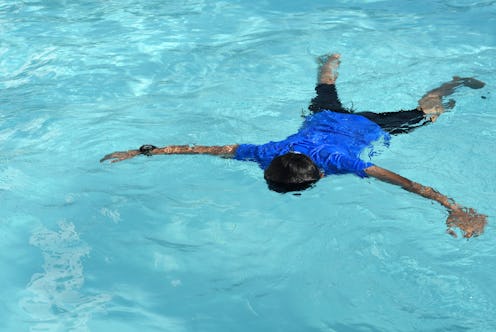The Twilight of the American Teen Lifeguard
A personnel shortage or a sign of the end times?

The twilight of an American icon is upon us.
Lifeguards — patrollers of our public waters, wielders of piercing whistles and little floaty boards, arbiters of who lives and who dies in the deep end — are in short supply this summer, Bloomberg CityLab reports. The number of people clamoring to become lifeguards has been in decline for years now, the YMCA told CityLab, but the pandemic and all its pool closures has only made recruiting and training more difficult this past year.
More broadly, though, the teens and young adults who typically make up the bulk of summer lifeguards at public pools have increasingly turned to internships and college prep instead of employment in the sun, yet another example of how the high pressures of careerist culture are destroying America. Other potential candidates are opting to work for for-profit amusement parks like Cedar Point, which can offer higher hourly wages than parks and recreation departments.
Thanks to the personnel shortage, many cities have no choice but to close their pools or reduce hours of operation. But what we stand to lose is so much more than just access to large bodies of chlorinated water. The lifeguard, a vision clad in red and white, is a cornerstone of American culture. What will we do without real-life reference points for classic cinematic and literary works like Baywatch, The Sandlot, and The Baby-Sitters Club: Boy-Crazy Stacey? How will we make sense of divinity without the radiant Apollos of our youth? Who else will fuel the imaginations of teens experiencing their first pricks of longing under the summer rays? (TikTok hunks? No thanks!)
“Lifeguarding isn’t as glamorous as it used to be, especially in the city,” Baltimore city recreation manager Daryl Sutton lamented to CityLab. “I was a lifeguard at an early age and they thought you were a hero. The world has changed.”
It has changed, indeed. And not necessarily for the better.